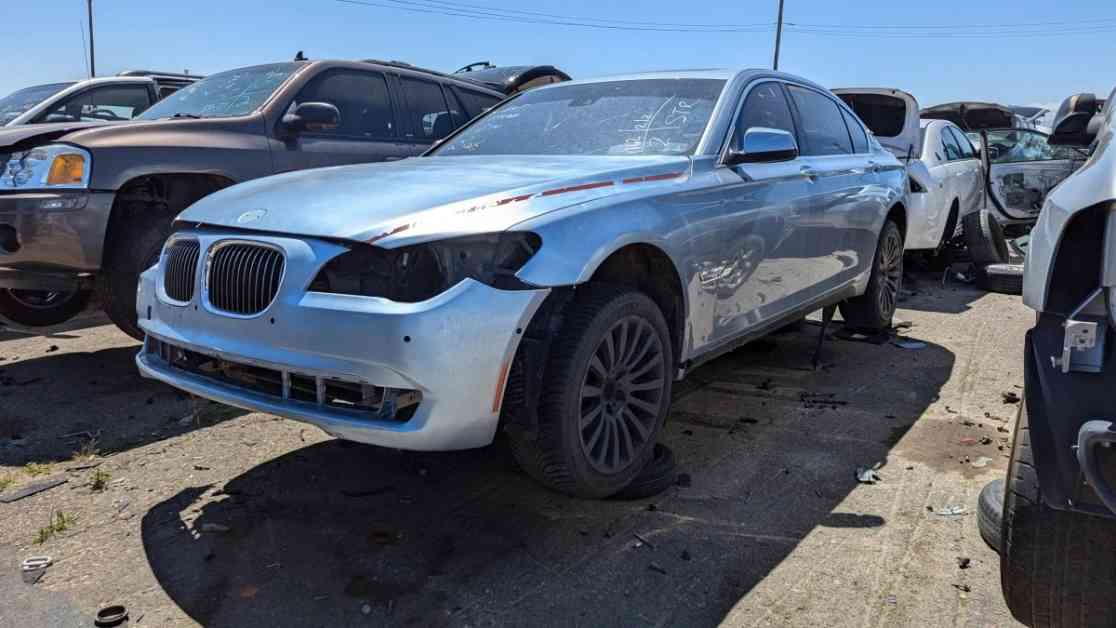The 2012 BMW ActiveHybrid 7 is a rare gem found in a Denver junkyard, showcasing a piece of hybrid history in the automotive world. This model was BMW’s foray into hybrid technology, offering a unique blend of luxury and performance. However, the car’s limited sales and high price point led to its eventual demise, with only 657 units sold in the United States.
When it was first introduced in late 2010, the ActiveHybrid 7 boasted impressive power figures thanks to its V8 engine and electric motor combination. With 455 horsepower and 515 pound-feet of torque, this luxury sedan was no slouch on the road. Despite its performance capabilities, the car struggled to deliver significant fuel economy gains compared to its non-hybrid counterparts.
One of the main reasons for the ActiveHybrid 7’s lackluster sales was its steep price tag. Priced at over $100,000, the hybrid model cost significantly more than the standard gasoline version, making it a hard sell for eco-conscious consumers. Additionally, the car’s heavy weight and complex hybrid powertrain likely contributed to its demise, as replacement parts were scarce and costly.
In 2013, BMW made changes to the ActiveHybrid 7 lineup, swapping out the V8 engine for a more fuel-efficient straight-six. This revised model offered better gas mileage, but still fell short of more dedicated hybrid vehicles like the Toyota Prius. Despite these improvements, the ActiveHybrid 7 struggled to find a foothold in the market and eventually faded into obscurity.
The fate of the 2012 BMW ActiveHybrid 7 serves as a cautionary tale for automakers looking to blend luxury and hybrid technology. While the car offered impressive performance and features, its high cost and limited practicality ultimately led to its downfall. As the automotive industry continues to evolve, it’s clear that finding the right balance between power, efficiency, and affordability is key to success in the hybrid market.









